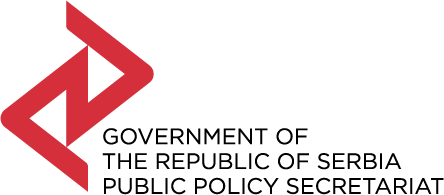Belgrade, 09 June 2022 – By April 2023, ten cities and municipalities will have modern, long-term development plans drawn-up, highlighting in one place the vision, goals and measures for faster economic progress and the creation of better living and working conditions for the citizens and businesses in their communities. Along that way, they will have the professional mentoring assistance of NALED and the Balkan Centre for Regulatory Reform, as well as the support of the Public Policy Secretariat, within the project financed through the German Development Cooperation implemented by the GIZ.
Strategic documents will be prepared during the implementation of activities: “Support to capacity building and designing of local development plans”. The official commencement of activities was marked today by signing of the Memorandum of Understanding between the project partners and leaders of the following 10 local self-government units, selected through a public call: Despotovac, Municipality of Palilula from Nis, Ivanjica, Kladovo, Loznica, Ljig, Smederevo, Subotica, Velika Plana and Zajecar.
– The Public Policy Secretariat is one of the most important actors in the process of capacity building for planning and coordination of public policies at all levels, in accordance with the Law on Planning System. Most cities and municipalities have so far fulfilled their obligations and adopted development plans, but we still have a significant number of those who have not done so and who need expert support. However, it should be emphasized that drafting a development plan is much more than a legal obligation. I would like to emphasize that a comprehensive planning document is the basis for local socio-economic development. It must be realistically based. Everyone will benefit from the development plans: the citizens, to begin with, and then the entire economy, civil society associations, as well as city and municipal administrations. The goal of the entire reform of the planning system is to improve the competitiveness of the economy and increase the standard of living at both the national and local levels – said Bojana Tošić, PPS Director.
– I would like to congratulate all municipalities and cities that are starting with the preparation of their local development plans supported by the German Development Cooperation, GIZ and partners. This will improve local governments’ strategic planning, but also make it more transparent and focused on the needs of their citizens. This is especially important at the local level, where public administration is in direct contact with citizens – said Daniela Funke, the director of GIZ in Serbia.
The local development plan is adopted for a period of at least seven years and its adoption is a legal requirement for the cities and municipalities under the Law on Planning System. Each plan must contain an overview of the current situation in various areas such as infrastructure, natural resources, health care, education, tourism, agriculture and the like. Based on these data, development opportunities are created, priority goals are pursued together with a description of measures that will be further elaborated in other public policy documents.
The process of the plan adoption should be transparent and include all stakeholders, citizens’ associations and businesses from local self-governments, which is a priority of this project, as well as encouraging inter-municipal cooperation. During the project, 10 expert workshops will be organized for the preparation of plans and joint meetings during which the municipalities will have the opportunity to exchange their experience and practice in this field.
NALED Executive Director Violeta Jovanović emphasized that the existence of a local development plan is a precondition for local governments to create business conditions tailored to the economy.
– Adoption of the strategy and formation of the Economic Council as a body within which the local government will directly and regularly communicate with businesses, jointly solve challenges and plan development measures are part of the criteria for successful completion of the Business Friendly Certification South East Europe. It is a seal of quality for a local self-government of a modern administration that systematically and efficiently encourages the development of the existing economy, which is the largest employer in every municipality and creates conditions for new investments that bring growth – said Jovanovic.
“Supporting capacity building and development of local development plans” is part of the activities of the German-Serbian Development Cooperation Project: “Support to Public Administration Reform in the EU Accession Process”, which is implemented by GIZ. The activity is implemented by NALED and the Balkan Centre for Regulatory Reform, in cooperation with the Public Policy Secretariat.

